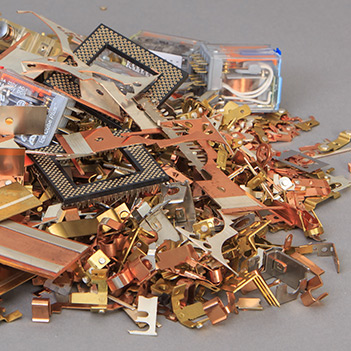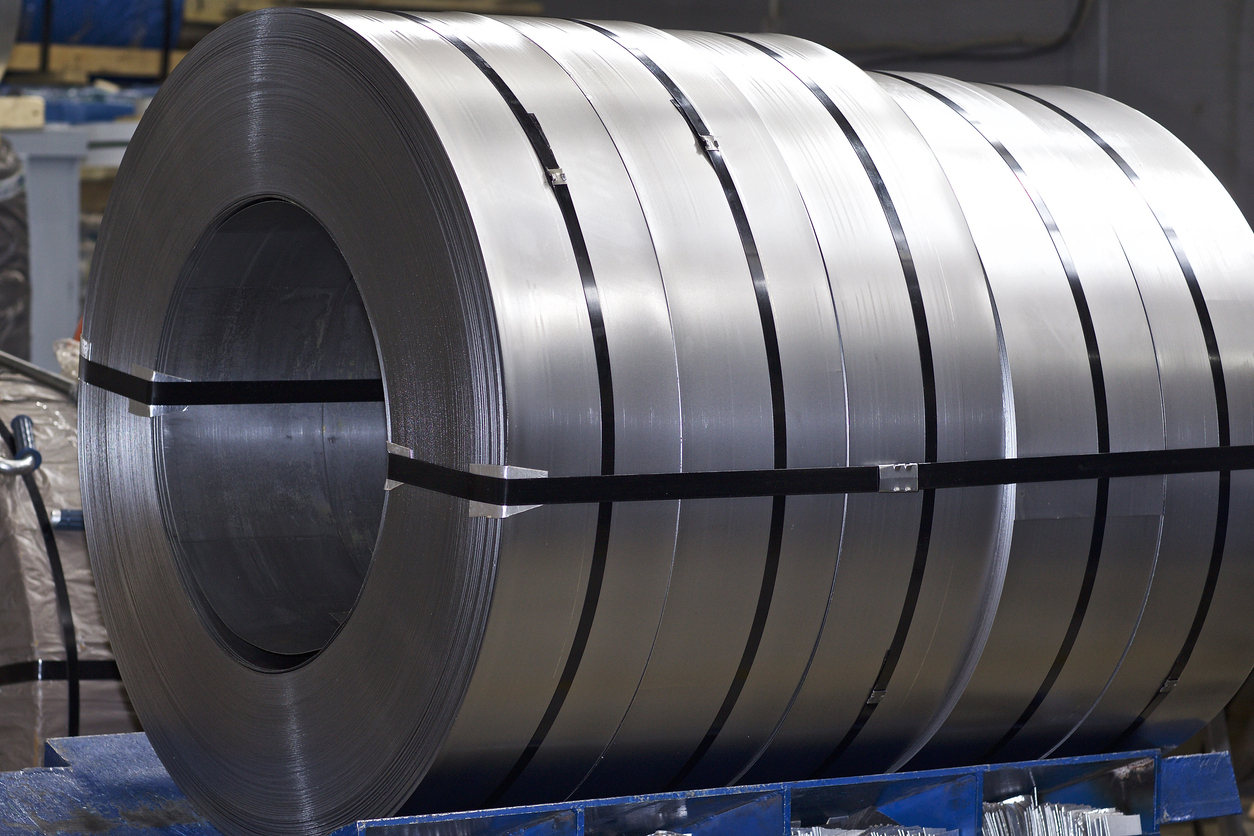How to Export Scrap Waste From Nigeria: The Best Way To Sell Scrap Materials
How to Export Scrap Waste From Nigeria: The Best Way To Sell Scrap Materials
The idea of wealth is often tied to money. So, you might be wondering how the idea of wealth can be tied to scrap materials. Well, scrap materials are an important part of Nigeria’s economy. They make up 20% of the country’s exports every year. But despite the importance of this industry, there are many difficulties with exporting scrap materials from Nigeria.
This article will explain how to export scrap materials from Nigeria and show you the best way to sell them. We’ll also talk about why this industry is so important for the country and what it means for its future.
What are scrap materials?
Scrap materials are materials like plastic, wood, and metal that are not used in the production of new products. These materials are often unused or discarded once a product has been made.
In a country like Nigeria, a lot of the economy is tied to exporting these materials. Scrap materials make up 20% of Nigeria’s exports every year. That’s a big deal! Scrap materials are an important part of the Nigerian economy.
However, there are a few problems with exporting scrap materials from Nigeria. For one, there isn’t a good way to transport these materials from different parts of the country to where they can be exported. Furthermore, there are also a few other issues with exporting these scrap materials from Nigeria, including the cost of transporting them and how difficult it is to export without a proper license.
In this article, we’ll talk about how to export scrap materials from Nigeria and show you the best way to sell them. We’ll also talk about why this industry is so important for Nigeria and what it means for its future.
Why is the export of scrap materials important for Nigeria?
The importance of scrap export for Nigeria is related to the importance of the industry itself. Firstly, scrap export is a major industry in the country. In fact, Nigeria exports 20% of its scrap materials every year—that’s a great deal for a country.
Secondly, it’s a major source of revenue. Scrap exports from Nigeria have been growing steadily in recent years, and the government is continuing to implement policies that will strengthen this industry. The increase in exports has helped Nigeria to recover from the financial crisis it’s been in since 2015.
Thirdly, the export of scrap materials from Nigeria is a good way for the country to help combat global warming. By exporting scrap materials, Nigeria can help countries that are importing raw materials from developing countries. The scrap export allows these importing countries to use their resources more efficiently and not waste them on things they don’t need.
The difficulties with exporting scrap materials from Nigeria
Nigeria has a population of 186.3 million people. Of that population, only 37% are employed in the formal labor market. The country is also plagued with poverty, violence, and corruption.
As a result of these factors, scrap materials are an important industry in Nigeria. But the industry is facing many difficulties when it comes to exporting their products.
The most significant difficulty is the lack of infrastructure. Nigeria only has 20 miles of railroad track in operation and most of it is outdated or requires heavy repairs. This makes transporting goods difficult and expensive, which makes exports even more difficult.
This leads to other problems for this industry, such as getting paid on time and getting paid at all. The lack of infrastructure also means that the country doesn’t have a reliable supply of electricity, making it difficult to use equipment such as forklifts and cranes to move the scrap materials.
Another issue that Nigeria faces is illegal exports. Illegal exports can come in the form of under-reporting or over-reporting the weight of the scrap materials being exported to avoid taxes and duties.
Unfortunately, these issues can lead to an overall lack of demand for exported scrap materials from Nigeria. That’s why it’s important to
How to export scrap materials from Nigeria
Nigeria’s scrap industry is a big part of their economy. In fact, 20% of Nigeria’s exports every year are scrap materials. However, there are many difficulties with exporting scrap materials from Nigeria.
The first difficulty is that there is a strong stigma around the industry. Many people in Nigeria look down on the people who work in scrap, and they do everything they can to avoid getting involved in this industry.
Secondly, there is a lack of good infrastructure. This is especially problematic because many of the ports are old and decrepit, making it difficult for them to transfer the scrap materials efficiently.
Thirdly, Nigeria has outdated regulations that make it difficult for them to export scrap materials. This includes regulations related to how much scrap you can export at once and how long you can stay overseas before importing back into Nigeria.
Lastly, one of the biggest problems with exporting scrap materials is corruption. It’s very difficult to get your materials past the border because corrupt officials will often take bribes or make up arbitrary regulations.
There are many difficulties with exporting scrap materials from Nigeria. However, it’s important because it’s one of the country’s top industries. The good news is that
The best way to sell scrap material in Nigeria
The export of scrap material from Nigeria is a booming industry. Yet, the problem is that the export of scrap materials from Nigeria is a difficult process. There are a few factors that make it so difficult, such as: Distance, bribes, and lack of infrastructure.
However, there is one way to overcome these difficulties: find the best way to sell scrap materials in Nigeria.
The best way to sell scrap materials in Nigeria is to find a reliable buyer who will buy scrap materials at the required price and also give you a decent time frame for when they will buy it.
If you want to know how to export scrap materials from Nigeria, this article will teach you how and why it’s important for the country.
The best time to find buyers
The best time to find buyers for your scrap materials is during the holiday season. You’ll have a wide range of buyers from all over the world looking to buy your materials. And since they’re searching for holiday-related materials, your scrap materials will be a great addition to their buying lists.
As a small business, you’ll also have a better chance of connecting with a buyer because you’ll be competing with fewer businesses. This will make it easier for you to sell your scrap materials and make a profit.
If you’re looking for other ways to sell your materials, don’t forget about car shows. They happen all year round and are a great place to find prospective buyers.
So, how do you find these car shows? You can find them on social media pages like Facebook and Instagram. Car show announcements are usually made on these pages.
If you’re looking for scrap materials to sell, it’s important to know where and when to find them so you can take advantage of these opportunities. The holiday season is a perfect time to sell your scrap materials and make a profit!
Which products are most profitable?
The type of scrap materials that are most profitable depend on the state of the economy. For example, during economic downturns, plastic is usually more profitable than copper. So, you may want to consider stockpiling plastic during good economic times so you can profit when the economy crashes.
Scrap materials are an important part of the Nigerian economy. But, there are difficulties with exporting scrap materials from Nigeria. For example, finding reliable partners can be difficult because of corruption issues. This means that people may try to cheat you in some way.
But there are many ways to help ensure your exports are successful. For example, you should find a partner that will work with you in a transparent way. You should also find a partner that will work with you in a mutually beneficial way.
How do you price your product?
Scrap materials are often priced by weight, volume, or a combination of the two. The weight is usually measured in kilograms. Volume is usually measured in cubic meters.
Pricing scrap materials can be difficult because there are many different rates for each scrap material.
For example, metal scraps can be priced by weight or volume. The price of a cubic meter of metal scraps varies depending on the type of metal it is, the quality of metal, and the place it’s being shipped to.
If you want to find out what your scrap material is worth, try searching online for the value of your product’s weight and volume.
It can be difficult to find out how much your product is worth because different materials have different rates depending on the type and quality of material. One way to find out how much your product is worth is to search online for the weight and volume of your product and see what rate it has.
Cost of transport and storage
Transporting and storing scrap materials will cost you money. For example, if you want to export your scrap materials, you’ll need to factor in the cost of getting the materials to the port. Then you’ll need to hire someone who is accredited and licensed to export scrap materials.
If you’re wondering how to export scrap materials from Nigeria, it’s actually pretty simple: Get your materials to the port of Abuja and hire an accredited and licensed person to transport them.
The Nigerian Customs Service (NCS) has a list of people who are licensed and accredited to export scrap materials. To find out which person on the list is right for your needs, you’ll need to know the weight of the materials you want to export.
Once you know the weight of your scrap materials, you can consult the list of people on NCS and find the one that handles that weight range. From there, you can contact that person and arrange transport.
Conclusion
So, what’s the best way to export scrap materials from Nigeria?
Well, you want to export the scraps through a lawful and legitimate channel. You don’t want to cut any corners or do anything illegal.
What’s the best way to sell the scrap materials after they’ve been exported?
The best way to sell scrap materials is to check with the scrapyard management before you sell anything. Different countries have different rules and regulations. You don’t want to get into trouble for exporting the scraps illegally. So, it’s important to figure out which country you’re exporting to and abide by their laws.
In conclusion, scrap materials are a valuable resource for Nigeria. Scrapyards can provide a wealth of jobs and make a considerable contribution to the economy. But there are a few obstacles that make exporting scrap materials from Nigeria difficult.
Luckily, there are ways around this problem. By following the steps in this article, you can help Nigeria reap the benefits of its valuable resource.








LEAVE A COMMENT
You must be logged in to post a comment.